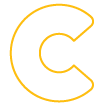User experience (UX) is a hip term. When you search on any job platform, you can easily find lots of companies looking for UX designer. I was trying to be in the trend and could't help labeling myself as UX designer. Then I found myself hard to explain "what am I doing as a UX designer?" UI for web, mobile app? Interactive prototyping? User-centered research?
To understand Islam in the US, I Interviewed a Muslim woman in Pasadena and used generative research methodologies .
Lots of people have a narrow definition to UX - only for digital product such as app and website. Indeed there are more new startups creating digital products but I disagree on this point of view.
For me UX is like the term "innovation" - it's so vague that it doesn't stand for anything.
Every designer is a UX designer - before thinking of any solutions, we look into user journey, step in their shoes and improve the experience. The only difference is delivery - graphic, physical product, digital product, environment, music, smell, video/animation, advertising, etc. When it comes to provide a thoughtful product, it also strongly connects to marketing and business strategy.
Then recruiter asked me "what is your focus? What is your strength?"
I have really broad interests in cognitive psychology, marketing, branding, business strategy, programming, visual storytelling (photography and videography)... I'm not an expert in any domain but holistic understanding helps me to create a better user experience.
I was presenting in the class Creative Thinking in an MBA school, INSEAD, in Singapore.
Having a hard time with family and people I love, I've been curious how our brains process information, why emotion is triggered, how we are wired in a different way, how culture and environment predefine our thinking, and how it relates to the experience of people reacting to everyday object... The books I've read and I would suggest are
Thinking fast and slow by Daniel Kahneman
How the mind works by Steven Pinker
The design of everyday things by Donald Norman
Being an introvert and non-English-native-speaker makes me a good observer - I often repeated in mind what other people said and mimicked the way of talking and behaviors.
I was working as a sales for 1.5 years in NI. Left pic is the first order I got - I was 22 years old.
Working as a sales representative in an American technology company, National Instruments, I sold not much but I learned a lot. A successful sales person is not the one who is good at talking about features; is the one who has the deep understanding of an user. This is the same idea as being a designer - all the cool feature won't make any sense if it's not solving user's needs.
I was in a school in Moshi rural, Tanzania in Jun, 2016 while doing my own volunteer project, LIA.
Traveling solo around the world and meeting people from different culture make me more open-minded, flexible it also trains me to solve problems independently.
So how does this experience relate to design?
I would say the boarders between science, art, psychology and business are blurry - they are not dividers. They are all connected deep under water. The method I learn in psychology can be applied to coding; the negotiation skill I learned can be applied to interview in user-centered research. There are so many things to learn and that's why I like being a designer.
I was cutting steel bars and welding it for my mockups in product design project, Aperture, in 2014.






